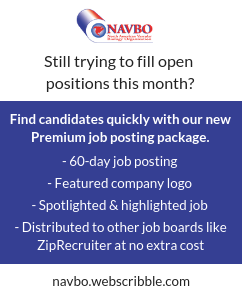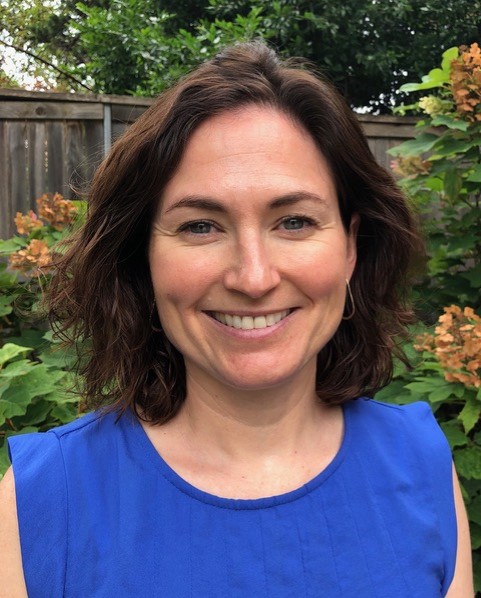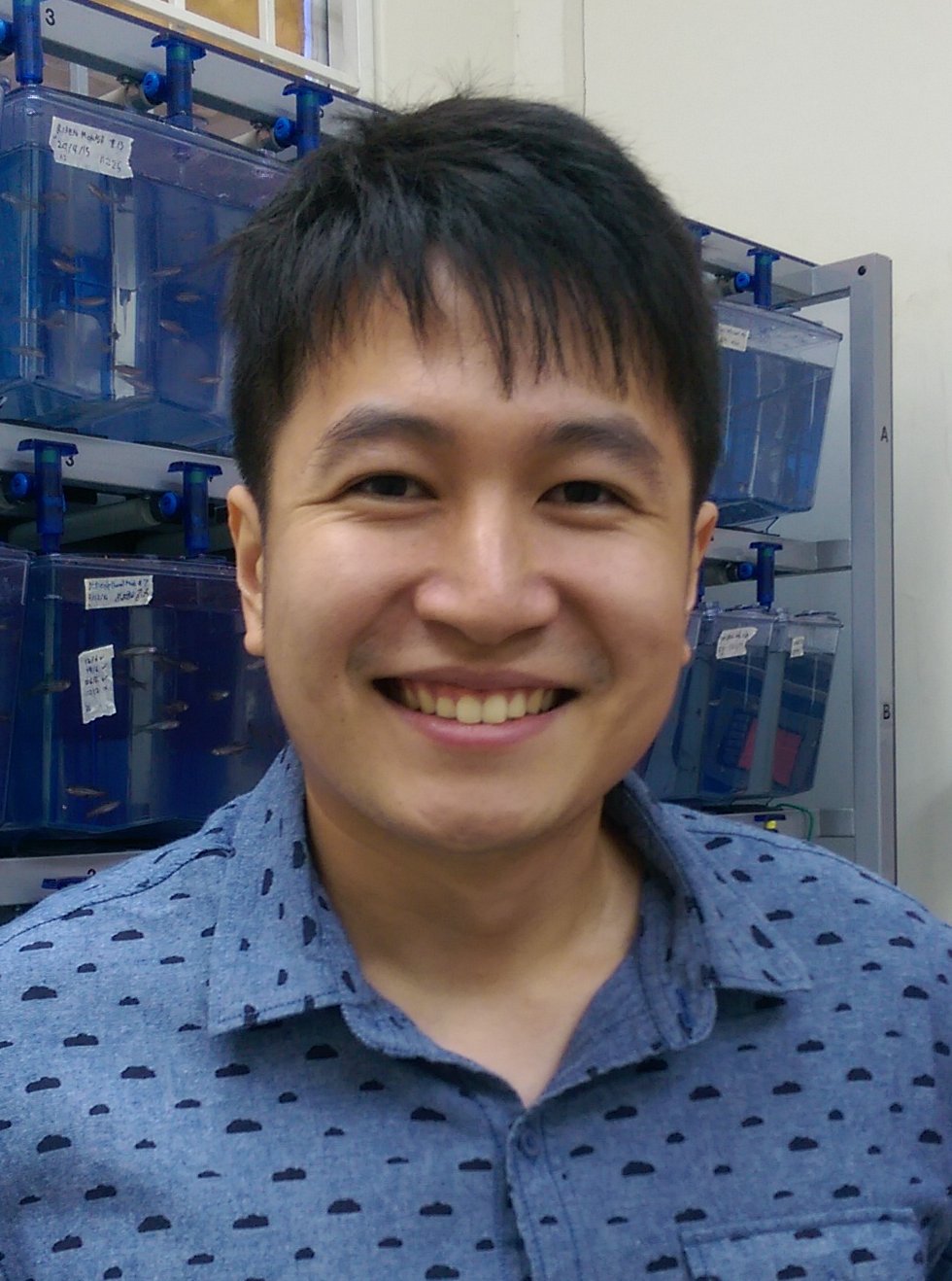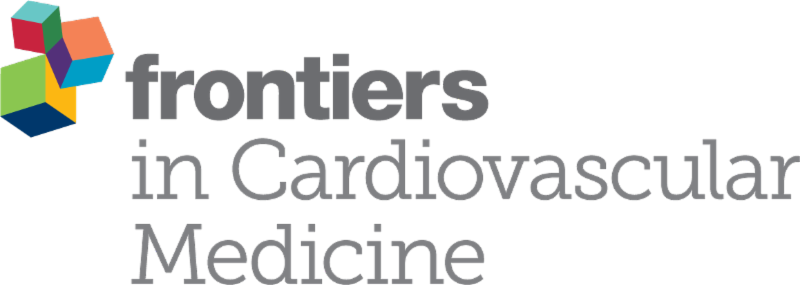|
William R. Huckle, Editor
|
Abstract deadline now Aug 17
Vascular Biology 2020
An exciting virtual event
October 26-29, 2020
|

Boston, MA
Postponed until Summer 2021
|
Vascular Biology Publications Alert Now Available by Subscription
The NAVBO Vascular Biology Publications Alert will now be available to non-members for a $55 a year subscription. If you would like to receive this alert, but are not a member, please contact Danielle at [email protected].
|
Shop at Amazon?
Help Support NAVBO
|
|
Partner Network Advantage on the NAVBO Job Board
|

Why post your job on NAVBO's career center rather than going directly to the larger job networks?
Pricing on the mass job boards can vary, but to get a job noticed you typically have to sponsor it for $5 - $10 per day, which can add up quickly especially since you also pay for each click the job gets. When you add it all together, you could be spending up to $45 per day on your job posting. But, when posting a job on NAVBO's career center, you simply pay a flat fee! The Premium package includes our Exclusive Extended Partner Network - which means the jobs are broadcast to sites like ZipRecruiter and Jobs2Careers and more for a flat fee.
With special member pricing, you can post a job for as low as $300 with this Partner Network. You never pay for each click, just the flat fee on the NAVBO career center. In addition, the Premium package includes a 60-day job posting making it a great value. The Premium packages also offer features like having your company's logo featured on the career center homepage, having your job appear first in search results, and more.
|
Your data privacy and security are important to NAVBO. To that end, we have updated our privacy policy to reflect recent privacy and security regulation implementations and changes.
Please review our policy as time permits so you have a complete understanding of the data we have, why we have it, and how we use it.
Part of the updates relate directly to the European Union's new General Data Protection Regulation (GDPR) that went into place May 25,2018. The GDPR seeks to improve the transparency of data usage and give end users more control over their own data. We believe these changes are important and will be compliant with the GDPR regulations.
Contact NAVBO if you have any questions or to
change your communication preferences.
Please note, you can unsubscribe to this newsletter at anytime by clicking on the SafeUnsubscribe in the footer.
|
|
 |
|
|
Meet the New President-Elect
|

Courtney Griffin, Ph.D.
Dr. Griffin is a Member of the Cardiovascular Biology Research Program at the Oklahoma Medical Research Foundation (OMRF), an Adjunct Professor in Cell Biology at the University of Oklahoma Health Sciences Center, and Scientific Director of the Oklahoma Center for Adult Stem Cell Research. She is originally from Athens, GA, received a BA in Biology at Harvard College, and fell in love with vascular biology during her graduate training with Shaun Coughlin at UCSF. She joined NAVBO in 2006 during her postdoctoral training with Terry Magnuson at UNC-Chapel Hill. Dr. Griffin's independent lab at OMRF has been studying vascular development and maintenance for the last 12 years, building off her training at the intersection of vascular biology and epigenetics. Current projects and funding are focused on the impact of proteases and inflammatory modulators on vascular growth and regression.
Dr. Griffin is excited to serve as President-Elect of NAVBO this year because the organization has been such a formative part of her scientific career. She is committed to helping Dr. Masanori Aikawa and Council members steer NAVBO toward continued growth, impactful outreach, and inclusivity this year as its members continue to navigate pandemic-related challenges in their professional and personal lives.
|
|
NEW - NAVBO Diversity Committee
|
|
We are very pleased to announce the formation of the New
NAVBO Diversity Committee. This has been an ongoing project that came to fruition when the group held its first meeting on July 16. The committee was formed under the guidance of
Dr. Masanori Aikawa, while he was President-elect.
The committee will foster diversity and inclusion and build support for those populations that are underrepresented in vascular biology including, but not limited to, Black/African American, Latinx/Hispanic, Indigenous Peoples of America/Native American (including Native Hawaiian and Alaskan), and LGBTQ+, as well as women, trainees, and internationally trained scientists. The group is currently working on a program to recruit new trainees from diverse backgrounds and are considering other projects, that for the time being will be online activities. We are very happy to have the following NAVBO members on this committee:
Elena Aikawa, Brigham & Women's Hospital
Mitzy A. Cowdin, UT Southwestern Medical Center
Yun Fang, University of Chicago
Princess Imoukhuede, Washington University in St. Louis
Grietje Molema, University Medical Center of Groningen
Masuko Ushio-Fukai, Medical College of Georgia at August University
Hiromi Yanagisawa, University of Tsukuba
Dr. Masanori Aikawa is the interim chair of the committee. We welcome your thoughts and input. Please email
[email protected].
|
Special Webinar!
Our August 13 webinar on Lymphatic Development, will be very

special indeed! Organized by NAVBO Member, Kazuhide Okuda of the Peter MacCallum Cancer Centre, this session will feature the following presentations:
Determining the genetic and developmental basis of human lymphatic vascular disease
Natasha Harvey, University of South Australia
The origin and assembly of the zebrafish facial lymphatics
Jonathan Astin, University of Auckland
Mysteries of meningeal lymphatic vessels
Jihoon Ahn, KAIST
The session will be held on Thursday evening at 8:30pmEDT so that our colleagues in Asia and Australia can tune in live! Click here for more information and to register.
Tweet this! Join the NAVBO webinar on Lymphatic Development.
Join us!! NAVBO Webinars are free to current NAVBO Members. Non-members can attend for $25 per webinar. Hint:
Join NAVBO!
And don't forget you can watch recorded webinars as well - go to
|
Very excited to be joined by:
The Microcirculatory Society
and the
American Society for Investigative Pathology
Abstract deadline extended!! We are currently accepting abstracts through August 17!
We realize that many of you are just getting back into your labs, so we hope this extra time will help you plan for your abstract submission. The meeting features the Biology of Signaling in the Cardiovascular System and Vascular Inflammation Workshops and a neurovascular cross-over theme.
New for the virtual meeting - all abstract authors will be required to present an ePoster regardless of whether you are chosen to give a short talk.
In lieu of travel awards, we will be offering more Poster awards. Review of posters is scheduled to open on October 12. Only meeting registrants will be able to view posters so be sure to register.
We're looking for volunteers! When you register indicate that you would like to judge posters and/or moderate a Round Table or Poster Discussion. Also, tell us what topics you want to discuss in our Round Tables.

Tweet this! Register for Vascular Biology 2020 |
|
Special Opportunity for Trainee Members!!
|
Emerging Scientists Series - Add Your Profile!! 
Take advantage of this opportunity to showcase your work for would-be employers. Join Cody on our web site!
We have heard from a number of people that both graduation ceremonies and thesis presentations have been cancelled and/or reformatted for remote participation. Coupled with the temporary halt in in-person conferences, this situation may be making it more challenging for trainees to network, promote their science, and search for their next position. To address this, NAVBO will offer online opportunities for our trainee members.
The new Emerging Scientists Series will offer trainees the opportunity to showcase their thesis research in short research highlight talks. This new resource will serve as a place for trainees to share their work with employers that are hiring and searching for a new recruit with vascular biology research experience. Postdocs - looking for your first faculty position? You can use this service as well.
If you are a trainee that has just defended your thesis, or a postdoc seeking your first faculty position and are interested in this opportunity, please contact [email protected]
|
|
Summer Grant Writing Workshop
|
Slide deck from the NAVBO Summer Camp Grant Writing Workshop
Review the slides from Dr. Zorina Galis' presentation. The slides include links to helpful resources. Click on the image above to download a pdf.
|
Outcry prompts rescission of Homeland Security strictures on international study in US
The recent directive from ICE that would force foreign students home if only online courses were available to them this fall has been
abruptly withdrawn
by the Trump administration. The rules, announced on July 6, swiftly sparked the filing of a lawsuit by Harvard and MIT that was
joined by more than 200 universities
. Other coalitions of educational institutions, as well as attorneys general in 16 states and the District of Columbia, separately challenged the policy.
Plaintiff's objections to the directives centered on their sense of being forced to choose between sound public health practice and more fully opening their campuses. The financial impact and timing of the stricter rules, coming mere weeks before the beginning of the fall semester, were other principal concerns.
|
Welcome to our New Members:
Akinola Akinbote, European Molecular Biology Laboratory, Barcelona
Ehsan Ban, Yale University
Ivan Barrera, Novartis
Marta Cherubini, EMBL
Hilary Clay, Novartis Institute for Biomedical Research
Andrew Davis, NIH
Sierra Duca, Weill Cornell Graduate School of Medical Sciences
Lauren Eades, University of Leeds
Anurag Jamaiyar, Northeast Ohio Medical University
Cody Juguilon, Northeast Ohio Medical University
Carmen Moccia, EMBL
Svanhild Nornes, University of Oxford
Claire Ozber, University of Leeds
Gonzalo Rivera, TAMU - VTPB
Arul Veerappan, New York University School of Medicine
|
| Recent Publications by NAVBO Members |
Tamoxifen-Activated Cre Impairs Retinal Angiogenesis Independently of Gene Deletion
Circulation Research
Read more
|
Endotheliopathy in COVID-19-associated coagulopathy: evidence from a single-centre, cross-sectional study
The Lancet Haematology
Background: An important feature of severe acute respiratory syndrome coronavirus 2 pathogenesis is COVID-19-associated coagulopathy, characterised by increased thrombotic and microvascular complications. Read more
|
Suppression of Endothelial AGO1 Promotes Adipose Tissue Browning and Improves Metabolic Dysfunction
Circulation
Background: Metabolic disorders such as obesity and diabetes can cause dysfunction of endothelial cells (ECs) and vascular rarefaction in adipose tissues. However, the modulatory role of ECs in adipose tissue function is not fully understood. Read more
|
Cerebral cavernous malformations are driven by ADAMTS5 proteolysis of versican
Journal of Experimental Medicine
Cerebral cavernous malformations (CCMs) form following loss of the CCM protein complex in brain endothelial cells due to increased endothelial MEKK3 signaling and KLF2/4 transcription factor expression, but the downstream events that drive lesion formation remain undefined. Read more
|
Mural Cell-Specific Deletion of Cerebral Cavernous Malformation 3 in the Brain Induces Cerebral Cavernous Malformations
Arteriosclerosis, Thrombosis, and Vascular Biology
Objective: Cerebral cavernous malformations (CCM), consisting of dilated capillary channels formed by a single layer of endothelial cells lacking surrounding mural cells. Read more
|
Myocardial infarction accelerates breast cancer via innate immune reprogramming
Nature Medicine
Disruption of systemic homeostasis by either chronic or acute stressors, such as obesity or surgery, alters cancer pathogenesis. Read more
|
Clonally expanding smooth muscle cells promote atherosclerosis by escaping efferocytosis and activating the complement cascade
PNAS
Atherosclerosis is the process underlying heart attack and stroke. Despite decades of research, its pathogenesis remains unclear. Dogma suggests that atherosclerotic plaques expand primarily via the accumulation of cholesterol and inflammatory cells. Read more
|
N6-methyladenine in DNA antagonizes SATB1 in early development
Nature
The recent discovery of N6-methyladenine (N6-mA) in mammalian genomes suggests that it may serve as an epigenetic regulatory mechanism. Read more
|
|
Industry News
(from our July 9 issue)
|
AAMC and CITI collaborate to share collective guidance on returning to research
The Association of American Medical Schools has joined forces with online training platform CITI and several leading academic institutions to produce COVID-19: Back to Campus (Fall 2020), preparing researchers and staff for a fall return. The program aims to help investigators navigate emerging regulatory guidance from multiple agencies including the CDC and NIH. Recommendations for best practices are included from Vanderbilt, Yale, Northwestern and other institutions. Modules cover a variety of topics from prevention strategies and human subjects research, to supporting employee mental health and well-being. Access to this course is free through 1 October 2020.
Breakthrough in mitochondrial genome editing
Beverly Mok of the Broad Institute and colleagues report in Nature the development of molecular tools that enable editing of the mitochondrial genome. The technique makes use of a bacterial intertoxin, DddA, that catalyzes the deamination of cytidines within dsDNA. By coupling this novel property with elements of the CRISPR and TALEN gene editing approaches, the team was able to modify mitochondrial sequences in a manner that predictably modulated respiration rates and oxidative phosphorylation in cultured human cells. This work raises the hope that treatment of mitochondrial disorders with known genetic bases may become more tractable.
American Red Cross adapts its blood collection and distribution procedures to the COVID-19 world
In mid-June, the American Red Cross began testing all donated blood, platelet and plasma for SARS-CoV2 antibodies, providing donors awareness of their potential exposure to the novel coronavirus. The FDA-authorized test for anti-CoV2 antibodies thus becomes part of the battery of assays routinely performed to screen donated blood products for evidence of infectious agents. Separately and in partnership with the FDA, the Red Cross has developed a process to identify and qualify individuals who have recovered from COVID-19 and to collect convalescent plasma. The organization expects this work to speed access by clinicians to this experimental treatment for the most seriously ill patients.
|
Dear friends and colleagues,
This special issue aims to provide readers with an up-to-date advancement in lesser-known genes, proteins and signaling pathways in vascular biology. Manuscripts related to concepts from these genes and proteins and their associated signaling pathways that connect into the well-established vascular ligand-receptor signaling systems are welcome.
For more details about this special issue and the "Author Instructions", please visit the website at
https://vpjournal.net/journal/special_detail/478
.
Are you interested in contributing an article before December 31, 2020? If yes, please contact Ramani Ramchandran (
[email protected]
), the Guest Editor for this special issue, or Mavis Wei (
[email protected]
), the Managing Editor of VP. If you need additional information, please feel free to contact us.
VP
is an online open access journal which was launched on March 31, 2017 by
OAE Publishing Inc.
It waives the Article Processing Charge (APC) for all publications since launched. Thus, your manuscripts will be published totally free of charge once officially accepted after quick and rigorous peer-review. Meanwhile, all manuscripts published in VP will be immediately available online for free downloading and reading. Further, if the work is funded by NIH, we can deposit it in PubMed on your behalf.
Thank you for considering this invitation.
|
|
Frontiers in Cardiovascular Medicine
 Special Research Topics
Special Research Topics
Putting Engineering Back In Vascular Tissue Engineering To Advance Basic Science and Clinical Applications
Topic Editors: Jessica Wagenseil (Washington University in St. Louis) and W. Lee Murfee (University of Florida).
This topic is sponsored by NAVBO
Vascular tissue engineering (VTE) can be characterized as the creation of replacement vessels. Over the past 30 years, approaches have incorporated different combinations of extracellular matrix scaffolds, cells and biological active chemical cues. Challenged by the goal to recapitulate the complexity of big or small vessels, the clinical use of in vitro tissue engineered vessel replacements is still limited. With research more often focusing on reductionist materials science or cell biology characterization of vessel-like constructs, an opportunity has emerged to re-apply engineering approaches to guide the next step in VTE.
Submit your manuscript by October 17, 2020
What do we know about COVID-19 implications for cardiovascular disease?
The coronavirus epidemic causes major cardiovascular complications. Underlying mechanisms, however, remain incompletely understood. Frontiers in Cardiovascular Medicine invite you to submit your article on this topic. We consider all types of manuscripts: fundamental basic science reports, translational or clinical studies, review articles and methodology papers.
Submit your manuscript by August 28, 2020
|
|
|